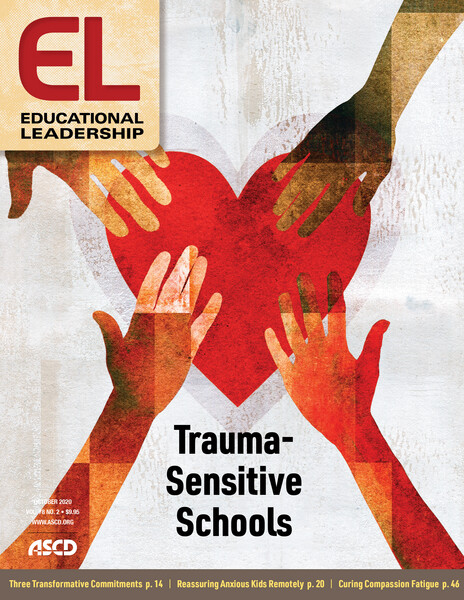Trauma & Young Children: Teaching Strategies to Support & Empower (NAEYC, 2020) by Sarah Erdman & Laura J. Colker, with Elizabeth C. Winter
Truly effective trauma-informed practice … is like a ripple in a pond. The child is at the center, and the rings moving outward are the child's family, you, and other staff the child interacts with the most … and the surrounding community.
It takes a village to raise a child impacted by trauma. That's just one of the takeaways from this comprehensive new book—or better yet field guide—for supporting vulnerable students.
Trauma & Young Children gives preschool and kindergarten educators (or anyone supporting a child impacted by trauma) a deep understanding of childhood trauma: the science behind it, its prevalence, how it impacts the brain and development, and the many types—as well as strategies for teaching, appropriately responding to, and building a connection with these students.
A partnership with families is especially key to helping young children with trauma, who aren't yet able to advocate for themselves. The book recommends family engagement practices such as collaborative goal setting and decision making; promoting well-being; facilitating positive family-child interactions; providing activities that can be done at home to support learning; and connecting families to each other and to community supports.
A truly reciprocal relationship requires "doing with" rather than "doing to." As one teacher puts it: "Instead of using your mouth to give instructions to families, you use your ears to listen."
—Sarah McKibben







